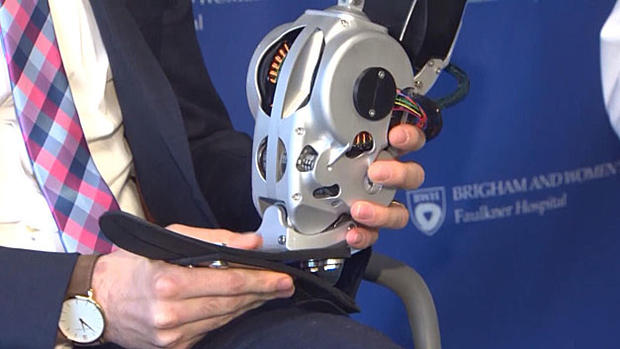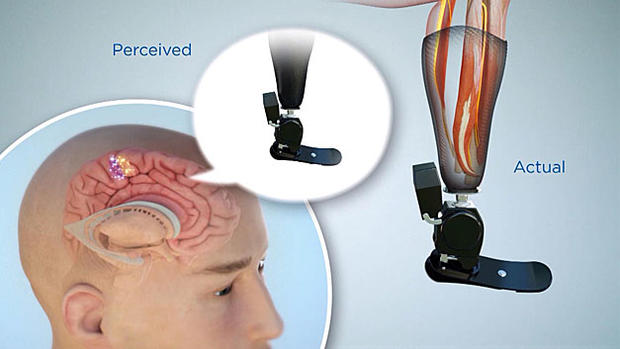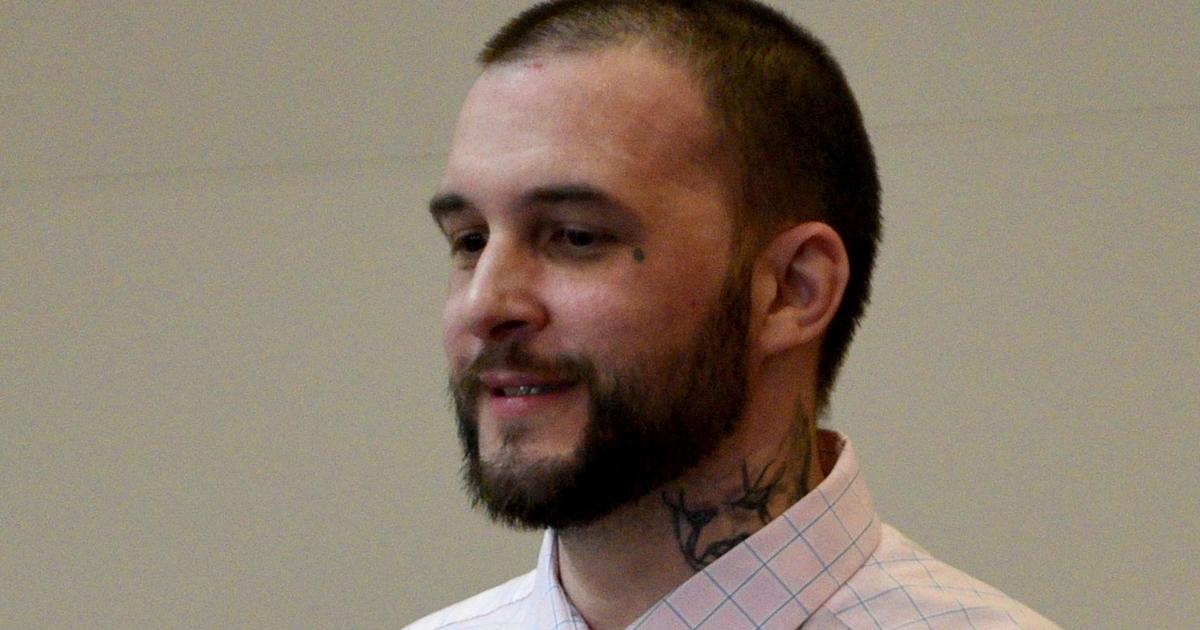Maine Man To Get Innovative Amputation Surgery
BOSTON (CBS) -- A 52-year old Maine man is the first to undergo an experimental amputation. If it's successful, it will allow his brain to control a robotic prosthesis, restoring natural movement.
Jim Ewing broke his ankle and several other bones in a rock climbing accident two years ago.
"It was incredibly painful to walk," Ewing said. "I never knew if the next step was going to be the one that kind of ended my day."
The ankle didn't heal properly, so four months ago Ewing underwent a pioneering amputation at Brigham and Women's Faulkner Hospital in Boston. The surgery preserves the normal signaling between the brain and the muscles in the remaining part of a patient's leg.
Dr. Matthew Carty is the Director of the Lower Extremity Transplant Program at the Brigham and the 2014 winner of the inaugural Stepping Strong Innovator Awards, established by the Gillian Remy Stepping Strong Center for Trauma Innovation. He says this type of amputation surgery is revolutionary.
"It will enable not only an amputee to control a prosthetic much more intuitively by activating muscles the way they normally would," Dr. Carty said. "It also filters information back to the brain which tells them where that prosthetic limb is in space."
A team at MIT created a robotic prosthetic with motors and sensors for Ewing that provides the same range of motions as a natural leg.
"This means that Jim will be able to point and flex his prosthetic toes as well as turn his ankle in and out," Tyler Clites, from the MIT Media Lab, explained.
Ewing is expected to receive his hi-tech new prosthetic in the next six months. It should make walking on uneven ground much easier.
"Walking in the woods and stepping off a curb will be much more natural and require less energy," Ewing said.
For now Ewing continues to use a traditional prosthetic to walk and go rock-climbing. He says being part of groundbreaking work is a big reason he volunteered for the experimental surgery. The doctors, in return, named the procedure in his honor.
Doctors say the technology could also be used to restore normal function to upper limbs.
WBZ NewsRadio 1030's Karyn Regal reports





